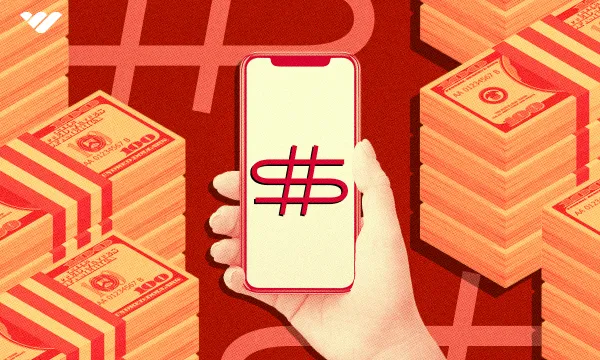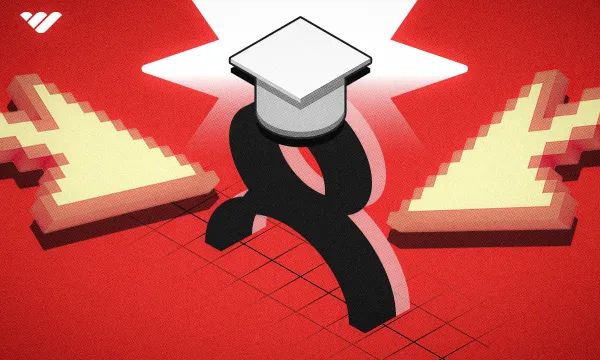Podcasts are all the rage, and for good reason—it’s the perfect form of content to consume on the go, whether driving or commuting, doing the dishes, or even drifting off to sleep. You’ve done well to recognize and get on board this trend, but can it become more than a fun little passion project?
We’re going to go into a lot of detail in this guide, but the short answer is yes, it can! A podcast can be an excellent source of income and, with a little work and the right strategy, you too can join the ranks of full-time podcasters.
We’ll take you through the basics of podcast monetization, and a list of ways you can grow your podcast revenue to where it needs to be.
How do Podcasts Make Money?
Podcasts can make money in a number of ways, but to better understand them, it can be helpful to look at the different strategies in terms of direct or indirect monetization. Essentially, indirect monetization means using your podcast and content as a vehicle to sell something else, while direct monetization means charging directly for content.
Given this approach, it’s far easier to plot out a path towards monetization. It all depends on your podcast itself and what theme, niche, or area you’re covering—some types of podcasts may simply be more geared towards certain means of monetization than others.
Before You Monetize: Make Your Podcast Memorable
Before we drill down even further and give you some examples of exactly how you can go about monetizing your pod, it’s worth thinking about branding and marketing first—if for no other reason than you can’t really monetize very effectively if you’ve got no reach or audience.
The quality of your podcast itself is something we’ll take as a given, but half of the battle is gaining impressions and turning them into clicks. People need to find out about, or see your podcast first, and then they need to click on it to listen to or download your content. Let’s look at the key elements involved:
- Branding and design
This covers things like the name of your podcast and the design of your “cover”. Assuming that a potential listener sees your podcast in a list, what prompts them to click on it? You can go the professional route with this one and hire a freelancer to help or do the designing yourself, but it needs to appeal to your target audience—and you’ll need to think up a name that’s both unique and gives the listener an idea of your vibe as well as your content. You’ll see what we mean a little later on in this piece. - Podcast SEO
Search engine optimization means increasing the amount of traffic to your website or platform page through non-paid search engine results. It’s definitely worth doing a little research here and making sure you’re optimizing for the right keywords and hitting your listeners’ search terms. - Audio transcripts
Creating transcripts can really help with your SEO since it gives search engines an idea of everything you discuss in your show. It also lets search engines index your podcast. - Show notes
This refers to a blurb about the episode in question, a description of what happened or was discussed, references to topics covered, and any relevant links. Again, this one goes a long way toward optimizing your podcast for search engines. - Your website
Even if you’re primarily going to upload your podcast to a certain platform, it’s a great idea to have your own website. This’ll allow you to drive traffic via effective SEO, and also serve as a platform from which you can launch your monetization efforts.
14 Ways to Monetize Your Podcast
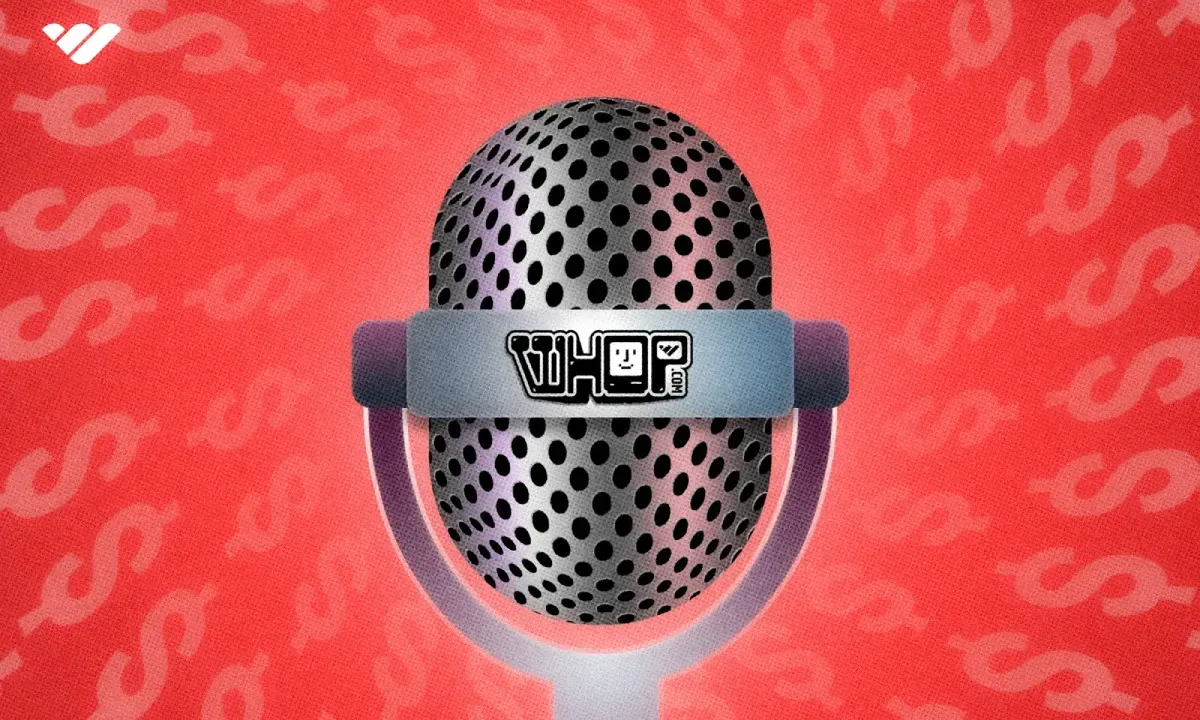
Now then. You know about direct and indirect monetization and you know how to set up your podcast for success—so all that remains is to look at the different ways that you can go about unlocking those revenue streams.
1. Ads and Sponsorships
The closest facsimile to a podcast in traditional media is a radio show, and you can definitely make money with your podcast in the same way that a radio show does.
Sponsorships or advertisements during a podcast are parred for the course, and you’ll most likely do them in the host-read format that radio jocks call “endorsements”. Host-read ads are where you break into the content with a personalized, sometimes off-the-cuff segment on the company or product that’s paying.
You might drop in mentions at the beginning, middle, or end of your show, and you can also choose to pre-record the spot or use fully-produced ads that your sponsors give you to edit in.
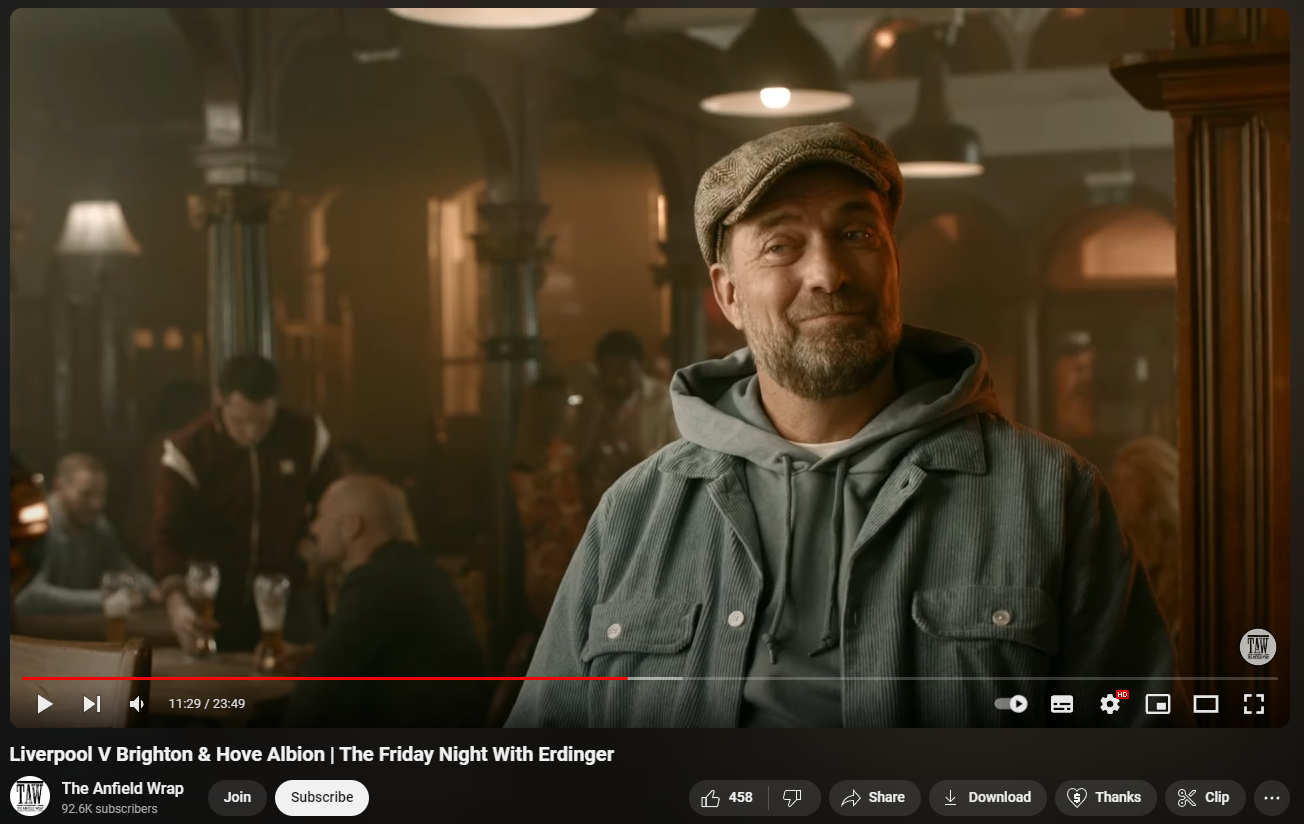
A great example of this is The Anfield Wrap, a podcast network (we’ll talk about that later) dedicated to Liverpool Football Club. One of their shows is sponsored by beer brand Erdinger, so they cut to an ad mid-roll that features legendary Liverpool FC manager Jürgen Klopp, pictured above.
The show sponsor also appears in the episode name, and the podcasters have several bottles (and rapidly diminishing glasses) with branding visible throughout the video version of the recording.
2. Donations
Donations are one of the founding blocks of the creator economy, and listeners know that it takes plenty of time and effort to produce the content that they consume, often for free. As such, many listeners are happy to donate funds directly to creators, especially in small chunks of a few bucks at a time—although some superfans can really go above and beyond from time to time.
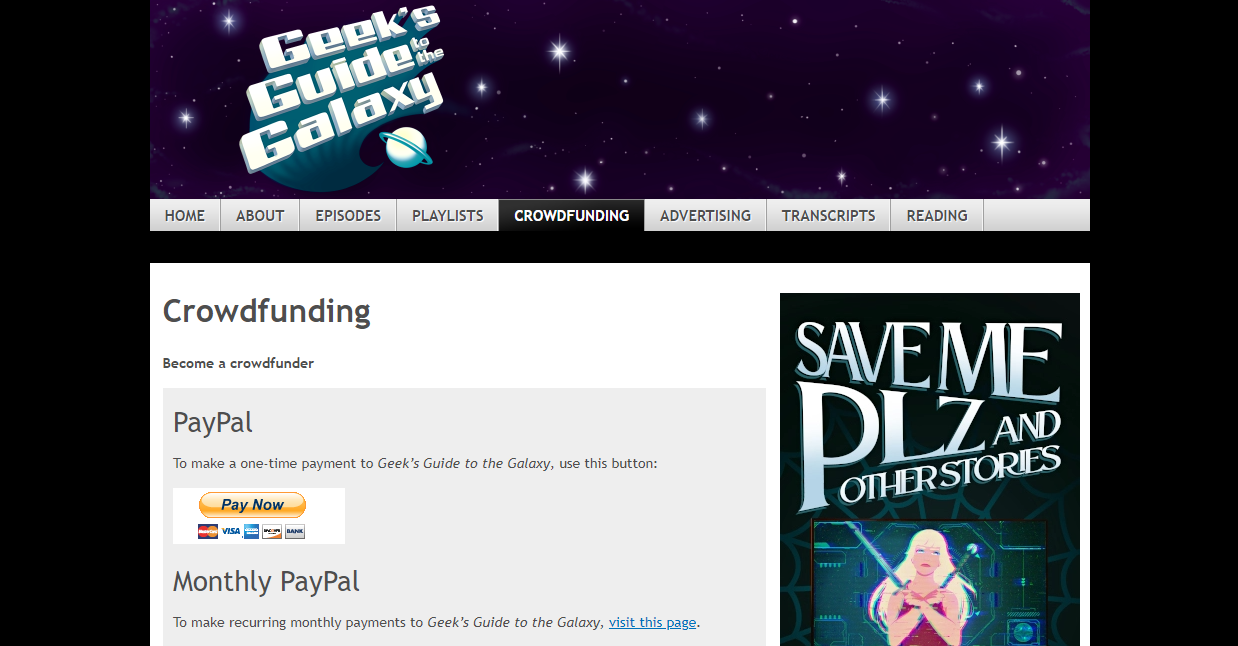
Hit sci-fi/fantasy podcast 'Geek’s Guide to the Galaxy', which has hosted an incredible array of guests including Neil Gaiman, does this by adding a PayPal button to a page on their website titled 'Crowdfunding'. That page also shows you the detailed, sincere way in which they request listener donations.

Fans don’t take it the wrong way when you ask for donations in an authentic way like this, and more often than not they’re happy to contribute if able. PayPal is also not the only option for this, with plenty of crowdfunding and membership platforms also offering a way to donate easily, including Whop's checkout link function.
3. Paid Membership Tiers
Membership platforms, as a matter of fact, can offer even more powerful monetization options than one-off donations. As important as they are, donations can be fleeting, and they’re extremely hard to make use of from a forecasting or analytics point of view if you’re looking at your podcast like a business.
That’s where memberships come in. These are just like donations, except that your listeners are signing up to pay you a small but regular subscription. Whether it’s monthly, quarterly, or annually, you can rely on these revenues more so than donations, and you can offer structured options to include listeners who might have differing levels of spending power.
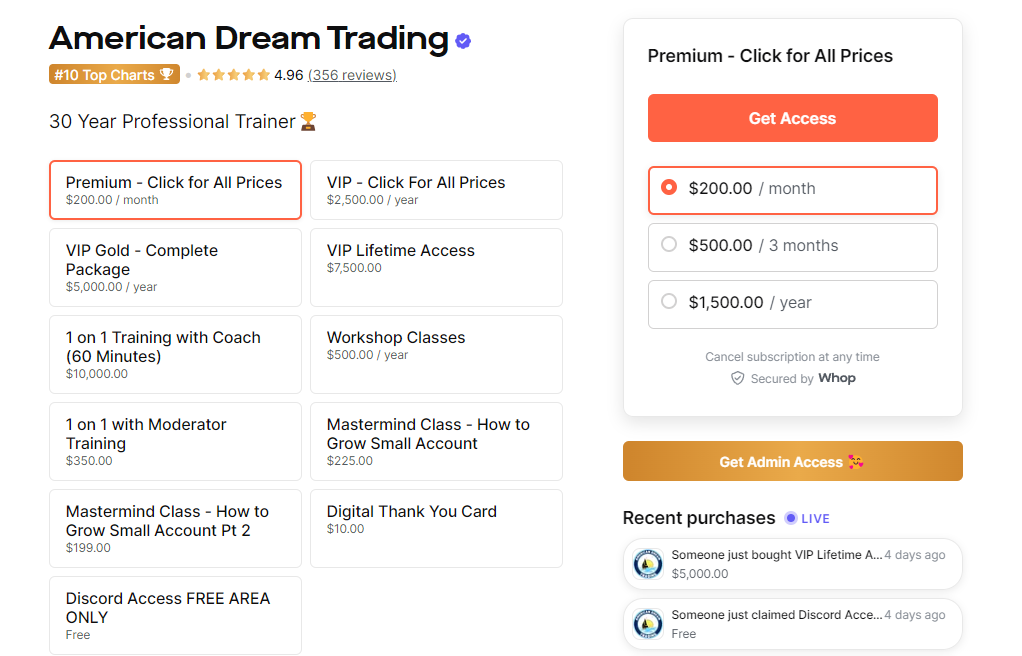
Platforms like Whop can really help you get memberships right. While American Dream Trading isn’t a podcast, you can see how they’ve really taken advantage of the membership tier model, offering various products and member tiers. They’ve even thrown in one-time lifetime access on the one hand, and a $10 donation option on the other.
You can do all of that with Whop too, and have as many or as few tiers and pricing options as you want. Each tier can be paid as frequently as you want it to be, and you can also have a free area for listeners who want to get their feet wet before joining up. If you think tiered pricing is the way to go, don’t look past Whop!
4. Premium Episodes
Donations and memberships can be very effective monetization options, but as a podcaster one of the easiest to start with is premium content. With donations, you’re essentially asking for a little help from loyal listeners, but premium episodes give them some bang for their buck.
If you’ve got enough of a following, there’ll be a considerable segment of your audience who would devour more content than you can put out—so if you have the time and resources to do so, why not give them what they want? What we’re talking about here is essentially paywalled content, which you can do in several ways.
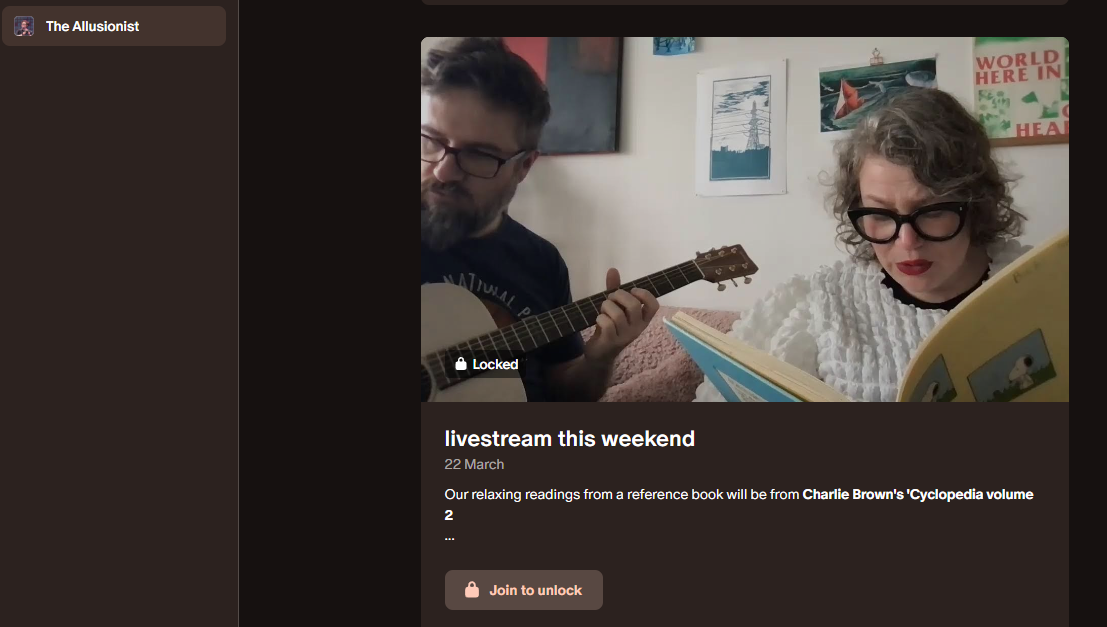
The Allusionist, a wonderfully witty podcast that delves into the depths of language, is a good example of this by putting premium episodes, including livestreams like the one above, behind a paywall. Some podcasts air snippets of their premium content for free with paying listeners getting the entire episode, and others go ad-free behind the paywall.
There’s only one real rule of thumb for premium episodes—give your listeners something worth paying for, and they will.
5. Merchandise
Merchandise is a staple of the content creation biz, and it’s been so for a while. Once your fans start to really identify with your podcast, plenty of them will be happy to support you by purchasing merchandise such as T-shirts, hoodies, coffee mugs, and other everyday items with a little scope for creative design.
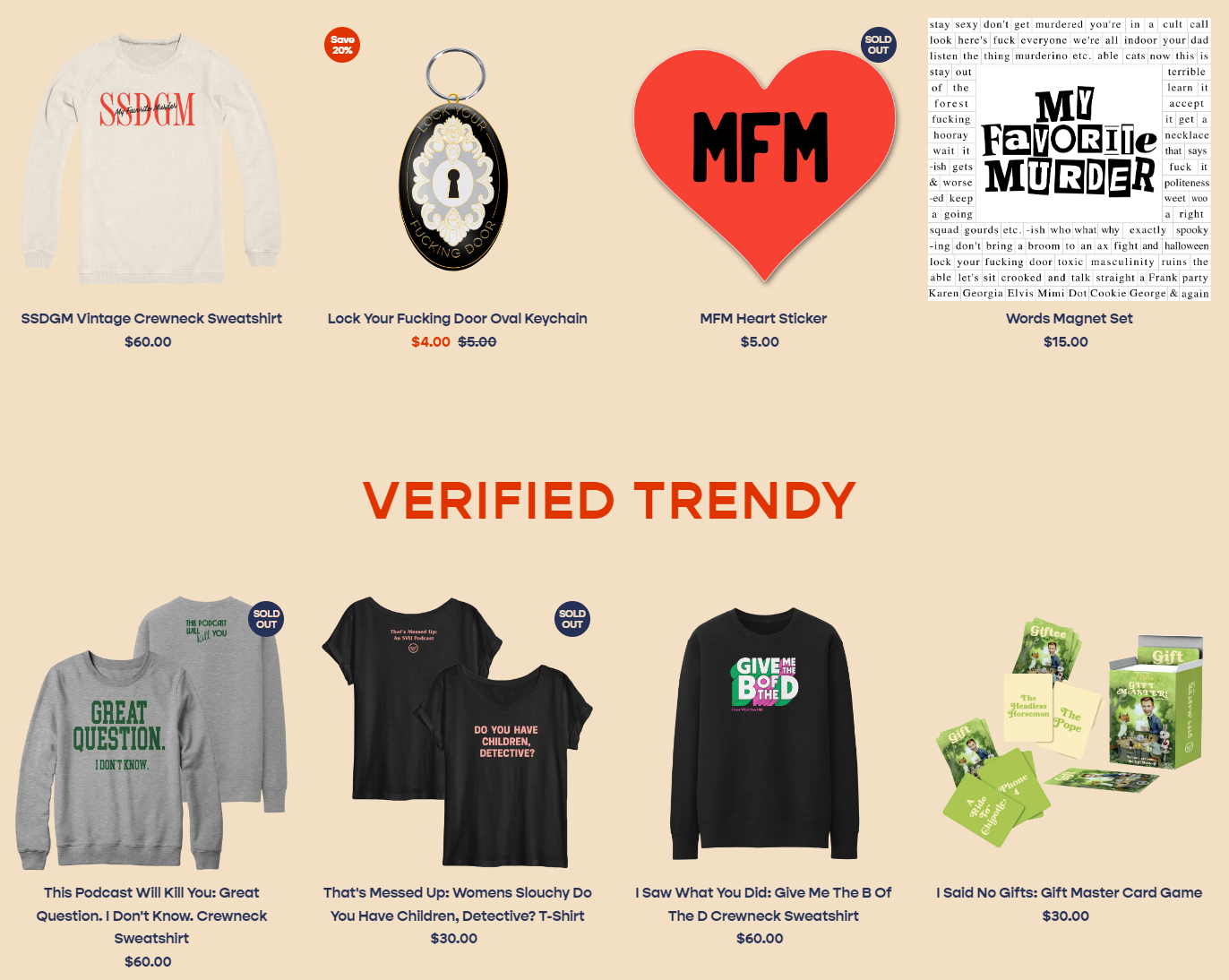
The My Favorite Murder podcast, which covers the chilling topic of true crime with a light-hearted bent, has an extensive store selling everything from the previously mentioned clothes and mugs all the way to jigsaw puzzles, keychains, fridge magnets, and caps.
The secret behind merch is understanding that it’s a simple print-on-demand business in its own right. POD is a huge industry, projected to hit almost $40bn at the start of the next decade, and it’s also an easy win if you’re a podcaster with some simple design ideas, branding, or catchphrases that can go on the front of a sweater. All you need to do is work up the design, find a firm that provides POD services, and set up your storefront.
6. Live Events
Podcasts are an extremely popular form of content consumption, and if you’ve got a halfway-successful pod, you’re already a rock star in the ears of many. So, why not go for the eyes as well? Lots of extremely successful podcasts have discovered that live events can be an incredible way to bring fans together and raise cash, whether in the form of live recordings or just a great party.
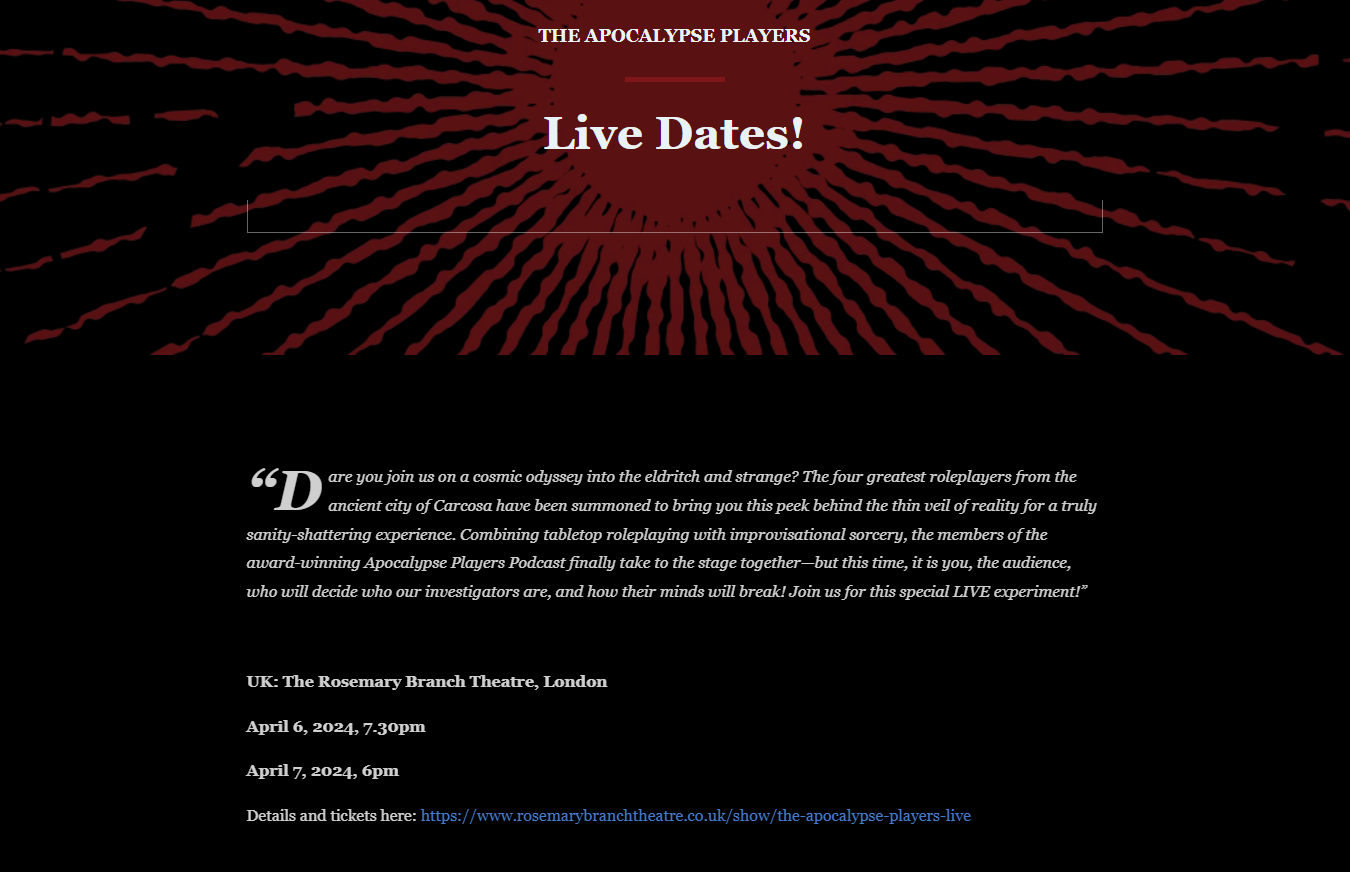
The Apocalypse Players, which has four professionally trained improv actors (and guests) take on Lovecraftian horror via the 'Call of Cthulhu' tabletop game, is a great example of an audio-only podcast expanding into live sessions.
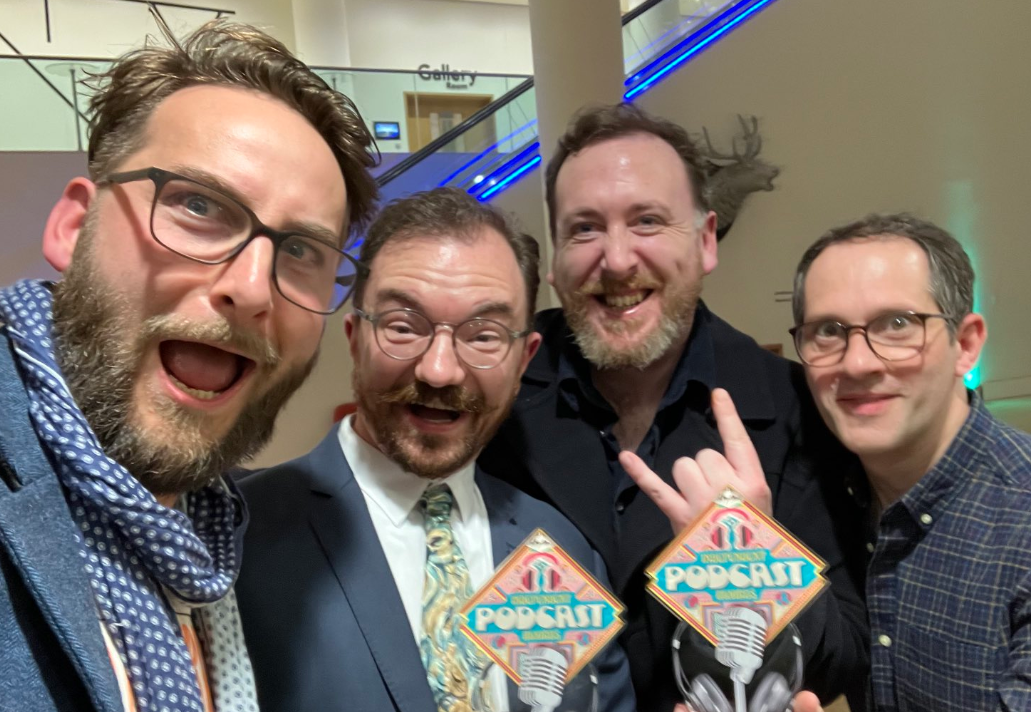
The pod, which came away double winners at the 2023 Independent Podcast Awards, started small but is closing in on a million downloads and has upcoming tour dates on both sides of the Atlantic—a journey which would no doubt prove strange and perilous within one of their episodes, but will hopefully be less eventful for the quartet in real life.
7. Online Courses
Online courses can be an excellent option for many podcasters, and you can look at this one in two ways. On the one hand, your experience actually building your podcast to where it’s at today is valuable, and there are plenty of people out there who’d like to start but don’t know how.
On the other hand, the area of interest or subject matter of your podcast itself might allow you to position yourself as an authority in this area. If so, then you might be able to design and sell an online course. This is a good option since you’ll be selling primarily to your existing listener base, but you can imagine that it might not be possible for every podcaster out there.
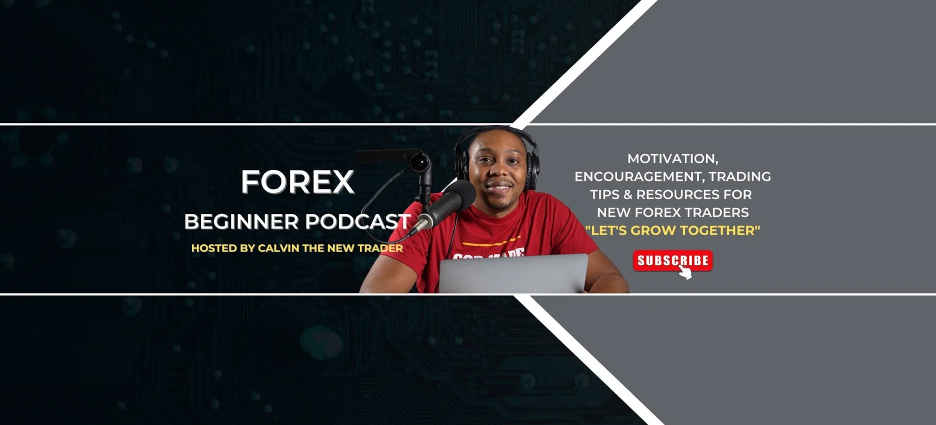
The Forex Beginner Podcast is a great example of how an online course can be a very logical next step if the subject matter lends itself in that direction. Plenty of listeners are happy to learn from a voice they trust, allowing host Calvin to sell his forex course.
8. Masterminds & Community
Some podcasts are all about building a community, which can then be monetized in different ways. Providing listeners with a sense of belonging around a shared interest can be an extremely effective way of building a rock-solid group, and you can then offer additional value in the form of things like mastermind events.
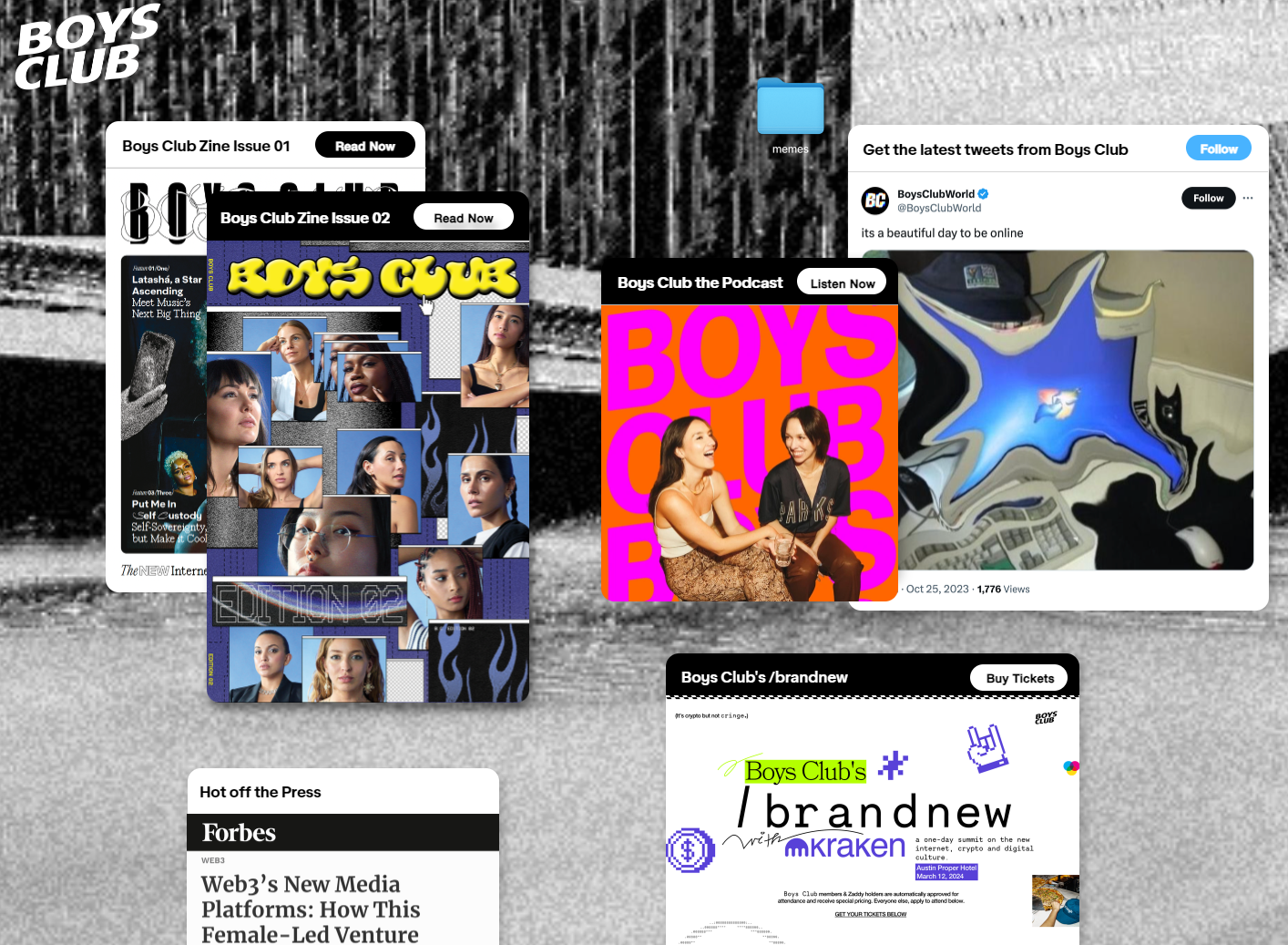
Boys Club is an example of how a podcast starts with a tight community and goes from there. Focused on the emerging blockchain-powered world of Web3, Boys Club puts their community first and makes it a gateway to monetized products like merch and live events.
9. Complementary Digital Products
Digital products tend to be a lot easier to produce, especially when it comes to fulfillment, than physical ones. For this reason alone, you should consider selling some sort of digital product that complements the subject matter or vibe of your podcast! Things like eBooks would work for plenty of podcast genres, but niche digital products like journals and templates can also work if you’re covering areas like wellness or productivity.
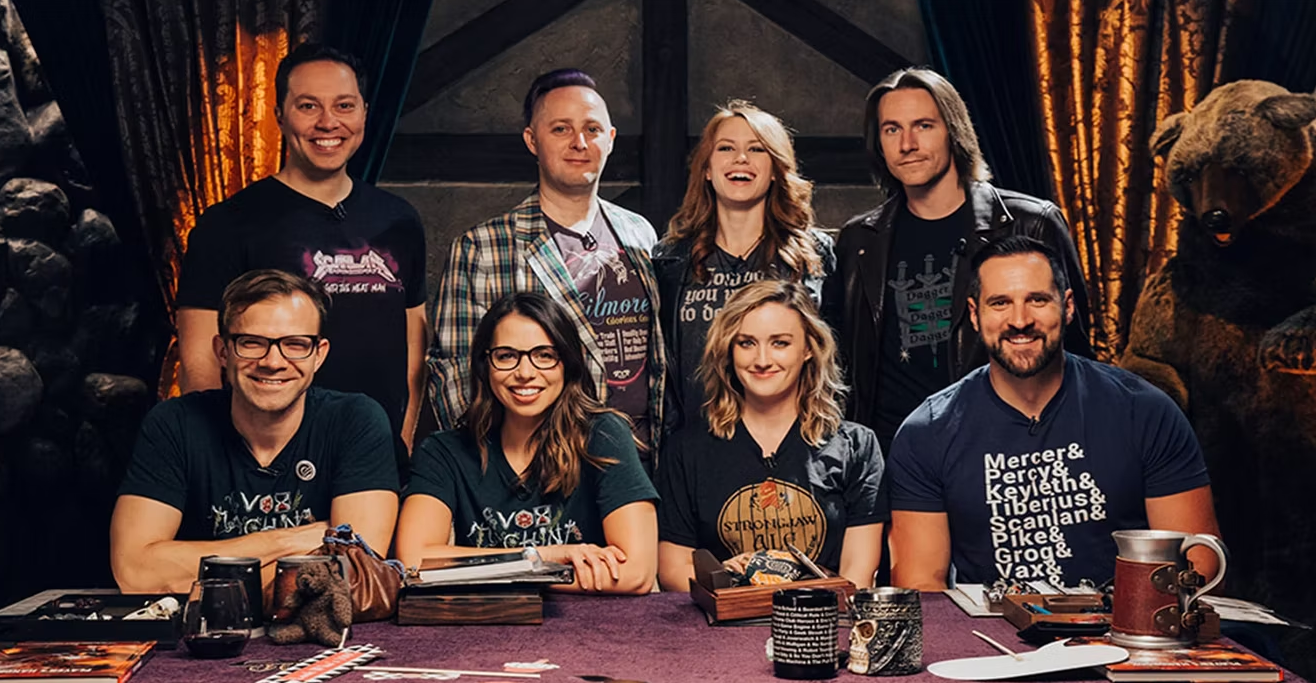
It’s hard to talk about podcasts (or any form of content creation, really) without pointing to Critical Role as a successful example. Granted, they started off livestreaming on Twitch, but adding the podcast format catapulted this “bunch of nerdy-ass of Voice Actors” into stratospheric levels of success.
Critical Role has just about every complementary digital product on offer that you can think of, including comics, art books, and their own campaign setting books that are available in digital format. They’re even working on their own tabletop game system, and have begun previewing it to their fans.
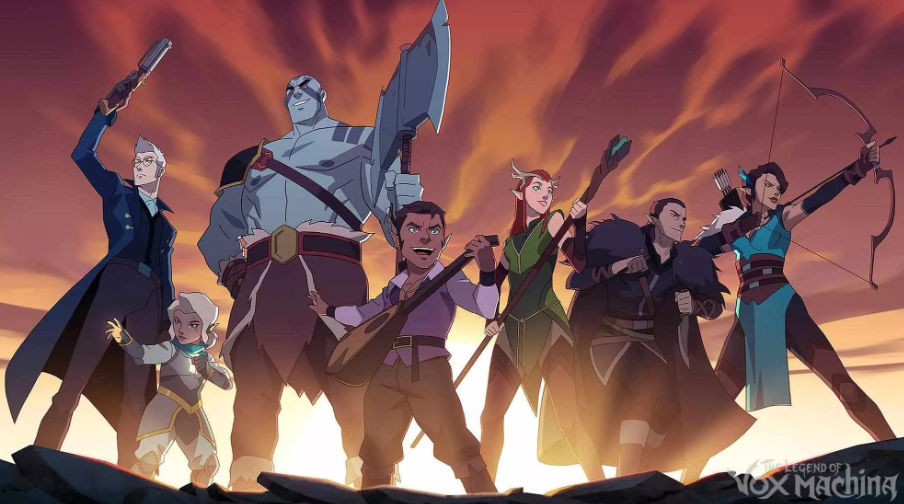
Most startling of all, though, Critical Role decided to crowdfund a 22-minute animation of their first campaign. That became the most funded Kickstarter for TV and film projects of all time, raising over $11 million, and the scope expanded to a ten-episode series. Then Amazon Prime Video swooped in to commission even more episodes as well as the animation of their second campaign.
While it’s safe to say that the Critters rolled a natural 20 on monetization (they’re among the top earners on Twitch too) they’re also a fantastic example of how genuine quality and creator-owned content can take the world by storm.
10. Consulting Services
We’ve mentioned already that opportunities can arise if you’re able to make yourself an authority in your particular niche via your podcast, and one of those opportunities is consulting. Services that align with your area of expertise shouldn’t be too hard for you to offer, and as long as they align neatly with your branding and topic, you should be good to go.

One of the easiest examples here is Podcast Hall of Famer Dave Jackson. He’s been an educator for over two decades and has started over two dozen podcasts, so it makes sense that he also offers his services to other podcasts as a consultant, helping them get off the ground and build a following.
11. Start a Podcast Network
Podcast networks are a very effective way to monetize because you’re building out a group of similar shows in related niches, allowing you to cross-pollinate in terms of audience. It’s difficult to do if you’re just starting out, but you may be able to team up with other podcasters in your niche and collaborate, creating the same effect.
You probably have already seen this in other areas of content creation—in the world of YouTube Golf, for instance, you’ll find that just about every creator there appears on other channels, cross-pollinating, collaborating, and growing each others’ audiences. This sort of networking is especially important in particularly niche areas where there’s a limited total audience.
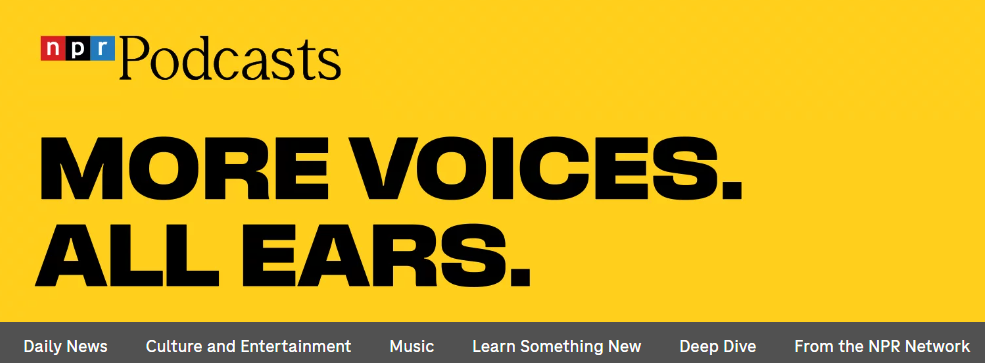
As far as out-and-out podcast networks go, it’s hard to look past NPR. It’s traditionally a radio network, true, but also has an extensive network of podcasts. BBC Sounds takes that even further, featuring a truly impressive stable of podcasts covering a wide range of themes but carefully promoting in adjacent niches—for instance, a football pod giving rugby a shoutout, and true crime podcasters mentioning film pods on the network.
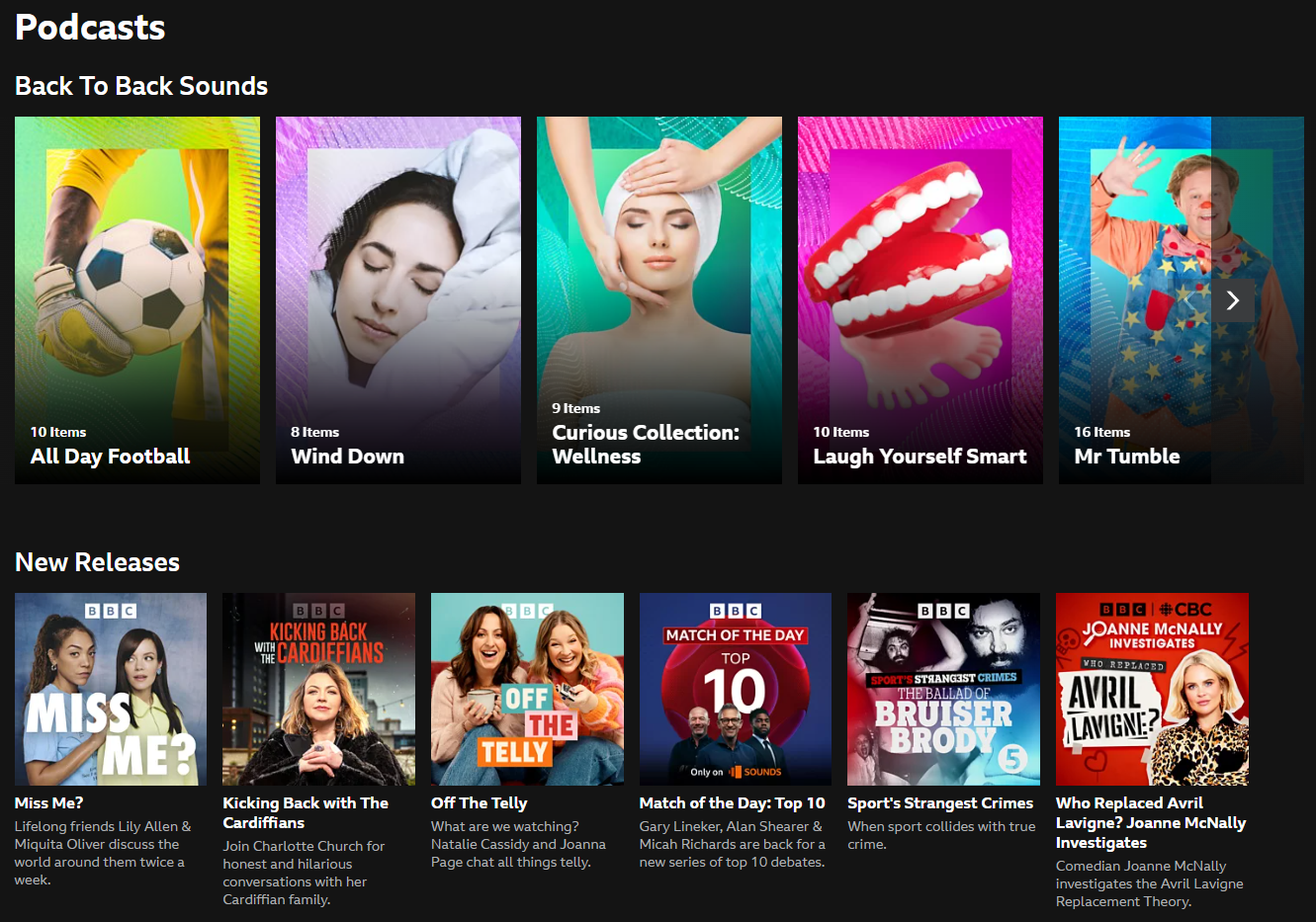
12. Join an Advertising Network
Instead of building up your own network or becoming part of one informally, you can instead go the platform route and apply to join an advertising network. Once you’re aboard, they’ll place ads aboard your show and share revenue based on how many thousand impressions the ad gets from your listeners.
Quite simply, the advertising network charges the sponsor for how many times their ad gets listened to, and then gives you some of that cash in a certain split—70/30 tends to be the norm, but each network may differ.
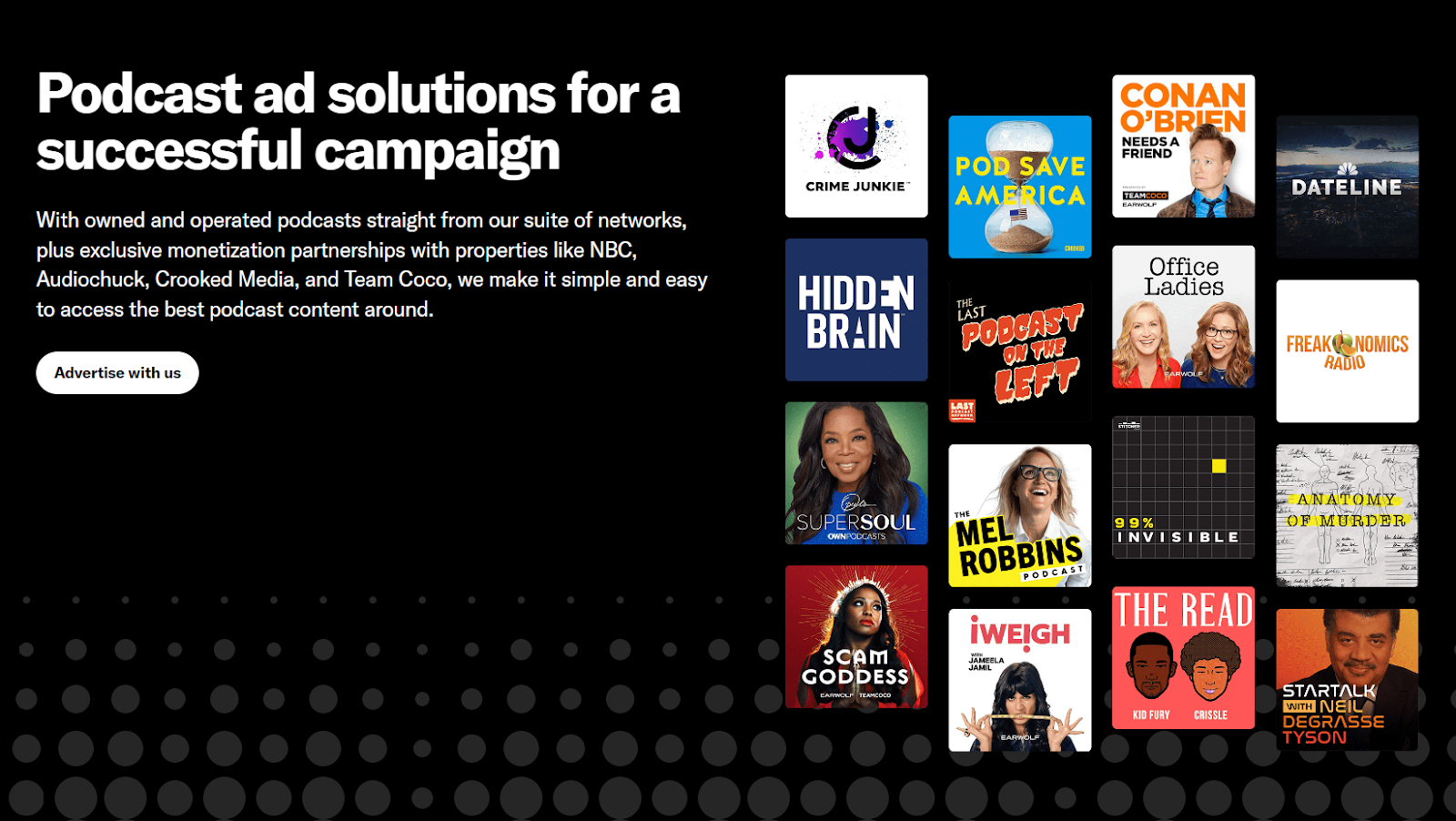
SiriusXM is one of the leaders in this area, offering various different formats of ads for sponsors to choose, including the host-read ads that we mentioned all the way back in the first entry of this list. It helps that they’re also one of the top podcast networks around, making them an extremely powerful and very compelling option.
13. Publish Your Show on YouTube
This one’s right in the low-hanging fruit category, since it requires almost zero additional effort to accomplish. Uploading your content to different platforms can be a superb way of getting more revenue, and with YouTube, it’s just a matter of creating an account and hitting 1000 subscribers before ad revenue starts rolling in.
If all you have are audio files you may have to import them into a video editor, but you can get away with just having a cover image—the audio’s the thing, after all! Even so, lots of podcasters have discovered that adding a couple of video cameras to their recording sessions can add heaps of value, making their YouTube uploads even more popular.

That Peter Crouch Podcast, for instance, started as an audio-only affair but now regularly uploads video recordings of each session to YouTube. Sadly, the episode they recorded in Buckingham Palace with now-Crown Prince William pre-dates this move.
14. Use Multiple Monetization Techniques
It might go without saying but we’ll say it anyway: if you’re serious about monetizing your podcast, you can and should try several of the techniques on this list. Just about every podcast we’ve used as examples for the different entries could have featured in other categories, too.
For example, That Peter Crouch Podcast has done multiple live shows at the O2 in London and used to be part of the BBC Sounds network. Critical Role has tons of physical merchandise in addition to their incredible digital offerings, and has a multi-year deal with SiriusXM for worldwide ad sales.
Almost every one of the small to mid-sized podcasts on this list also uses a membership platform like Whop to manage donations and memberships/subscriptions.
Best of all, you can get up and running with a lot of these strategies quickly. Building a community with a tool like Discord, publishing to YouTube, setting up your Whop—none of these monetization options will steal too much of your recording or editing time, but all of them have the potential to bring in revenue.
How Much Money Can You Make From Podcasts?
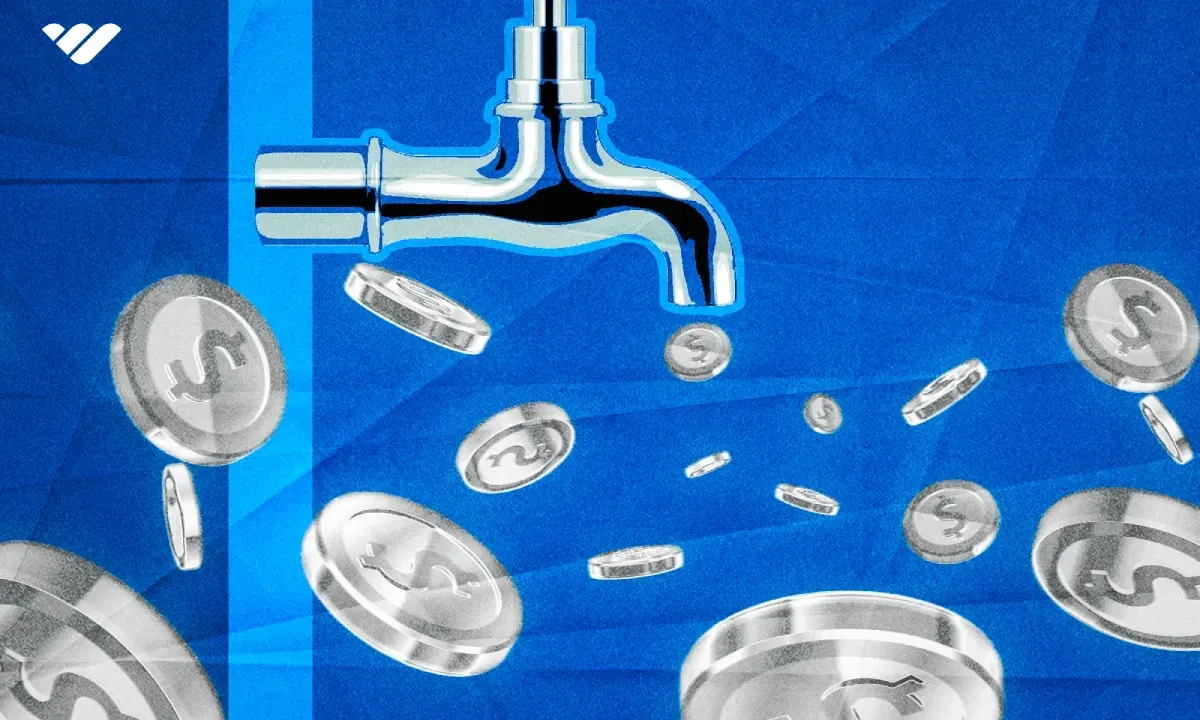
How much money you make from podcasting depends on how well you utilize the different monetization techniques that we’ve outlined above. You don’t have to (and probably shouldn’t) try to do all of them at once, but you can strategically pick and choose a few as your mainstays and dip into others to create additional streams of income.
Live events, for instance, tend to be a more sporadic source of revenue given the logistics involved. They take lots of effort and planning, and while they can bring in tens of thousands of dollars if you do it right, they probably aren’t going to be your bread and butter as a podcaster.
On the other hand, other methods can provide consistent revenue with minimal effort. Publishing your shows to YouTube can be done almost immediately with very little additional cost, and even just adding a camera or two can provide an upside—every 1000 views can bring in a few dollars (generally between $1 and $30 depending on niche and audience demographics).
Then there’s things like memberships which bring in additional recurring revenue if you provide some added value, premium content for boosting sales, and complementary products and merch which can really boost your revenue if you’re willing to set them up.
And of course, advertisements and sponsorships can also be a major contributor to your revenue, and can really transition a small podcast from bootstrapped to the big time.
Monetize Your Podcast With Whop
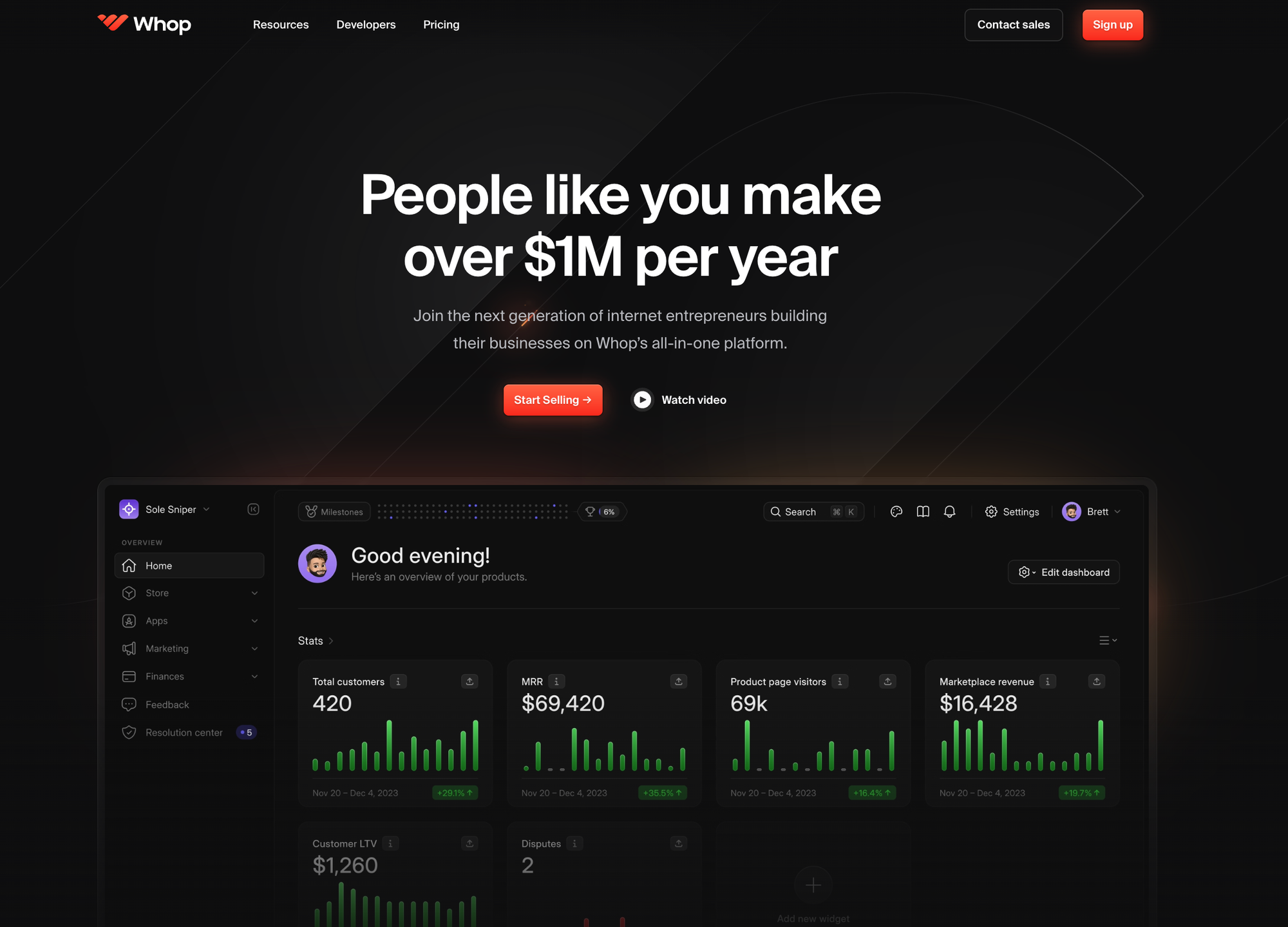
Now that you know that monetizing your podcast is all about the smart use of both direct and indirect methods like courses, merch, memberships, premium content and ads, all that remains is to get set up with a platform that can enable each and every one of those!
As such, you shouldn’t look any further than Whop. Whop provides you with a discoverable hub where you can optimize for search, giving them all they need to know about your content as well as a rock-solid checkout experience when they donate or become a member. Using Whop, you can:
- Paywall your premium content
- Create and sell courses
- Run masterminds through Whop Events
- Create and sell all kinds of digital products
- Create and sell memberships and subscriptions
- Manage your community
- and much more...
So, if you want to get serious about making money as a Podcaster, check out Whop today!
FAQ
How long will it take to make money from my podcast?
That depends on how quickly you can build up your audience. Once you get to around 500 or 1000 downloads you should start to see revenue coming in from ads.
When should I start trying to monetize my podcast?
There’s no hard and fast rule here, and it might be suggested that you should start plotting out your route toward podcast monetization even before you publish your first episode. That said, you should probably save a few methods for later—launch things like memberships later down the line. Publishing to YouTube or streaming on Twitch, on the other hand? The earlier the better.
How many downloads do I need for my podcast to make money?
There aren’t any hard and fast rules here unless you’re on an advertising network. If so there’ll be a minimum threshold of downloads you need to hit. The same goes for publishing to platforms like YouTube for views. Otherwise, use your best judgment as to when to start up your memberships or offer premium content.


![40 Easy ways to make money online [2024]](/blog/content/images/size/w600/2023/11/20-ways-to-make-money-online--1-.webp)

